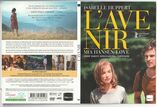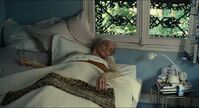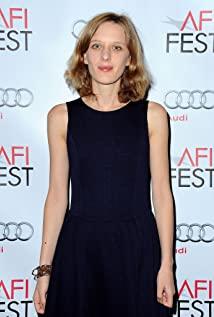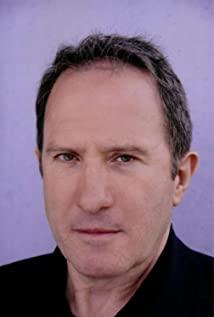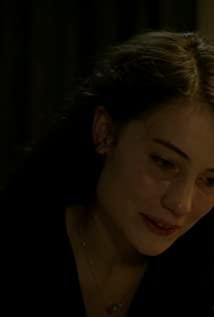The film "L'avenir" combines two seemingly different levels to express, one is the unbearable real life, and the other is in many Philosophy that must be kept on the shelf in people's impressions, this kind of fusion is delicately deconstructed through the life experience of a middle-aged female teacher who teaches philosophy, but it can also combine the secular and spiritual, life and thinking to complement each other, and they are mutually related and mirrored. , which also explain each other, which shows that the French post-80s female director Mia Hansen-Love's increasingly mature light and shadow performance skills, perhaps, can easily make life in a philosophical family, Mia benefited from having a professor of philosophy at Sorbonne University. 's father.
It can be said that "Something in the Future" is Mia's best work so far. In terms of narrative and mood, it does not lose to the film "Silsma" written and directed by her husband Olivier Assayas (Manyu's ex-husband). Leah, just a little more lightly. The film has a comfortable rhythm, a seemingly random structure and editing, and a temperament like a cloud. Many people praise it for its predecessors' style, but I personally think that Mia also has her own style. Although the film also has intellectuals The long dialogue of the book also dropped the book bag, but the poetry and philosophy have a suitable human temperature, and there is not much humor scattered in it, but it is just right, there is no dullness at all, and there is no lazy leisurely and slightly superior self-confidence, more There is no decisive pessimism, but dissolves in the waves of life.
At the beginning of the film, the heroine Natalie and her husband and children visit the tomb of Chateaubriand, the only building on the island of Grande in Brittany. The back of the tomb is against the vast sea, opposite the tomb, on a rock, inscribed with these lines: "A great French writer rests here, I hope only the sound of the sea and the wind can be heard. Passers-by, please respect his last Wish." When the children and Natalie left, the husband, who was also a philosophy teacher, was still standing in front of the tomb in the camera, which seemed to indicate the "old man"'s reflection and worry about his own life.
In subsequent films, the audience heard the names of countless sages and literati mentioned or saw the names of tome authors swept by the camera, including Rousseau, Enzensberg, Günter Anders (interesting Yes, Natalie must mention that he is Hannah Arendt's first husband), Emmanuel Levinas, Martin Bubel, Schopenhauer, etc. Many golden sentences and poems are mentioned, and speculations in life appear frequently, but the audience does not feel tired and bored, probably because it is properly connected with life itself. Natalie has never been far from the "Book of Sages" in her mind, while fulfilling her duties as a wife, mother, daughter, and mentor in reality. She wanders in her thoughts in words, and walks between housework and work, busy and helpless. , but always brings a kind of tenacity, a kind of beauty, as
Leona Keren said: "Beauty is a state of consciousness, a special moment of poetry and elegance." An intellectual woman, Aunt Isabelle Huppert is indeed at ease. Her calm and calm temperament is highly compatible with the role, as if it was tailor-made for her. Voltaire said: "There is no such thing as fate, everything is nothing but a test, a punishment or a compensation." Natalie in the film suffered a complete breakdown of her life at this time in her life, and her philosophical writings are now fragmented in today's fragmented. In the age of reading pictures, I lost the opportunity to reprint. My mother who was suffering from an illness died suddenly, her husband cheated and moved in to spend life with her new love. The way the philosophical couple separated is also intoxicating. Her husband took away the Iman that Natalie marked without permission. Noor Levinas and Martin Buber, which made her angry more than marriage. Many people say that in the messy real life, philosophy is actually useless, but the thinking habits brought by philosophy will enable smart people to have a deeper understanding of the sudden change of life, so Natalie's surprise , Lost, but also calmer than ordinary women.
There is a scene in the film that fits Natalie's philosophical physique very well. Her husband who has moved away suddenly appears at home and says that he wants to read "The World of Will and Appearance" quietly here, and wants to stay for a New Year's reunion. Fan, Natalie asked him rationally, because a behavior that shouldn't exist may bring other unexpected troubles, some things must have a clear conclusion, middle-aged life can't stand a whim or a Momentary emotion, after all, "man can do what he wants, but not what he wants (Schopenhauer)."
Following the laws of nature, Natalie has become a grandmother and has a new worldly identity, and she readily accepts this generational upgrade as she accepts other changes in life. Once dubbed by Natalie as a relic of the dead mother of the weird old black cat, she also has a home. At this stage of her life, she has encountered a lot, but the worst and the best have passed, and there may be other bad things in the future. Or good things, I believe she can handle it calmly.
(magazine appointment)
View more about Things to Come reviews



